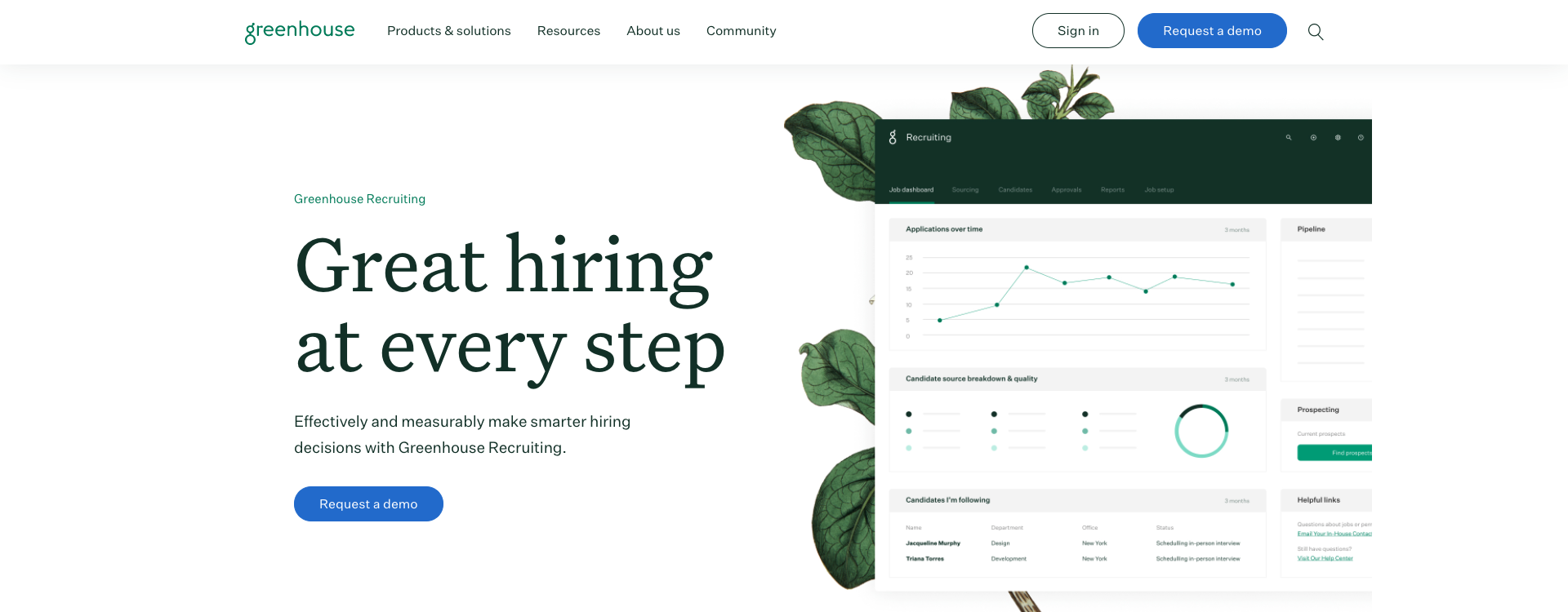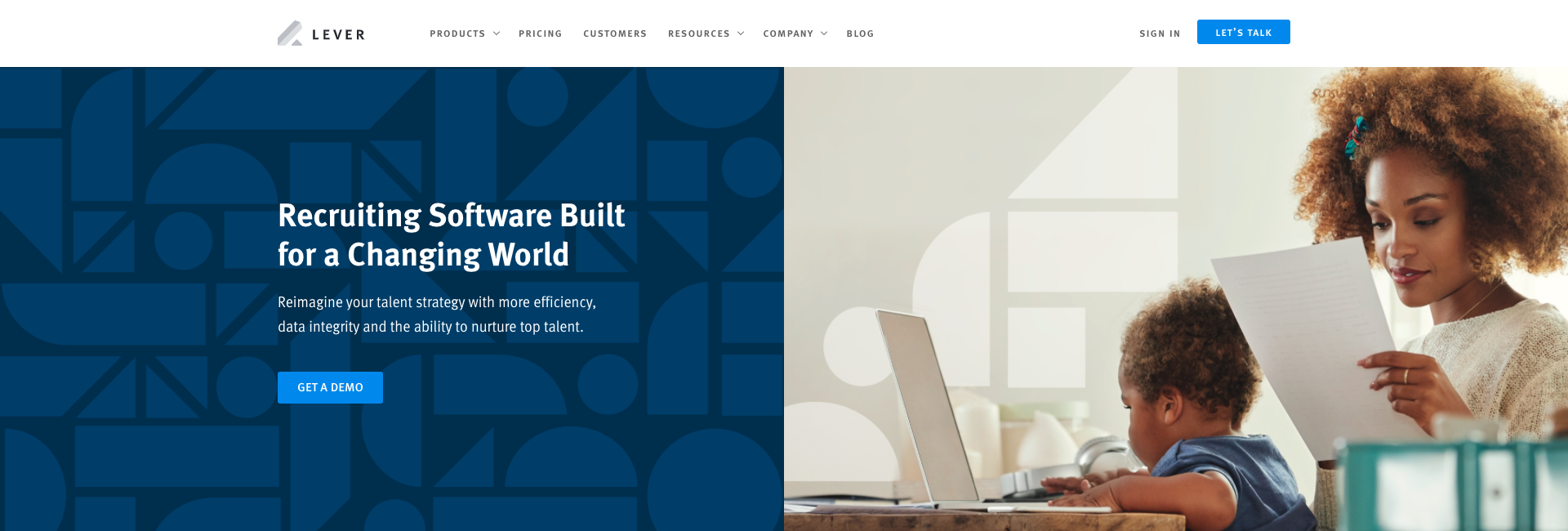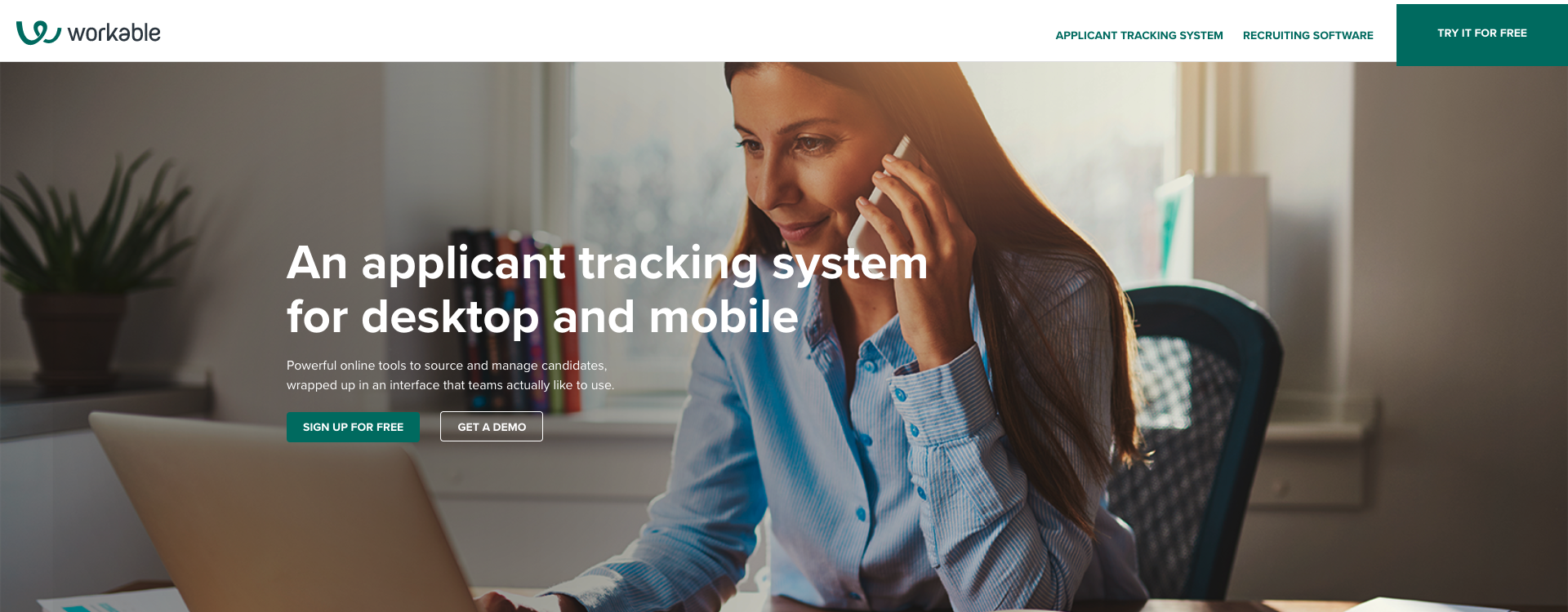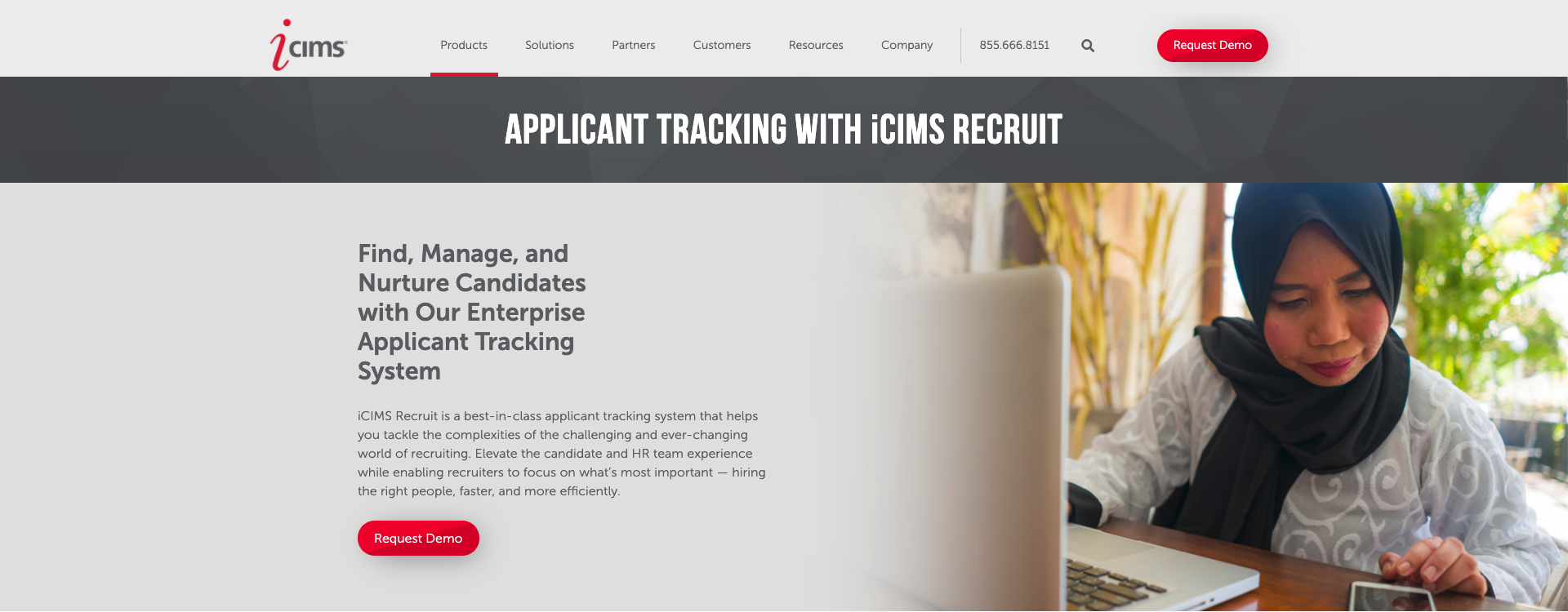Best Applicant Tracking Systems For Remote Companies
Which applicant tracking system is best? Discover why this tool is so helpful and see our picks for applicant tracking software remote teams should consider.

Which applicant tracking systems are best for hiring as a remote company?
What is an applicant tracking system anyway?
With the current unemployment rate, over 13 million people are looking for jobs — and that doesn’t include potential candidates outside the US. As eager candidates push out more applications, hiring teams are getting inundated with resumes, making the process of finding the best fit more challenging.
But applicant tracking systems (ATS, for short) can help remote hiring managers and recruiters better manage this influx. And that’s exactly what we’ll be exploring in today’s guide.
We’ll start with the basics:
What is an Applicant Tracking System?
An applicant tracking system is software that collects and sorts the resumes you receive for a job ad.
The technology within this tool automatically compares resumes and sifts through them using specific criteria you set in the database (such as job keywords, titles, or years of experience, for example).
You’ll also have the option of adding what’s known as “knockout questions.” You’ll set one or a few questions candidates must answer to submit their application. ATS will scan these responses and only allow those that pass the test to move on.
The software then sorts and ranks all the resumes meeting your criteria and pushes the rest aside.
Hiring managers wind up with a much smaller pool of applicants to consider rather than wasting both time and money sifting through a giant stack of potentially unqualified candidates.
Focusing your time and efforts on the most talented bunch means you’ll be able to conduct a remote interview faster and onboard new hires ASAP.
But wait! There’s more!
4 Benefits of Using an Applicant Tracking System as a Remote Company
ATS saves time in the hiring process by reducing the number of resumes you have to look through. And since stats show most hiring managers receive an average of 250 applicants per job ad, this is a considerable perk.
But it’s not the only one. An applicant tracking system can also help teams:
1. Gain a Better Understanding Of the Right Candidates
As your ATS sorts and ranks candidates, you’ll quickly develop a better idea of which types of applicants fit the criteria for your position more than others.
You may discover that applicants hitting 80% of the keywords added in your job description are much more qualified than those who only nail 50% of them.
From here, you may be able to discover other similarities — such as their relevant training or years of education — that may predict whether you want them in the “pass” or “definitely consider” pile.
2. Quickly Discover Your Candidate Honey Hole
ATS with smart dashboards provide access to analytics and metrics hiring managers wouldn’t have otherwise.
Depending on the software you choose, you may be able to track where your candidates found the position, which can help your team in a few ways.
If you’re continually finding top talent from one source, keep focusing your efforts here and consider pausing job ad sources that don’t seem to pan out as well.
Posting an ad on a job board exclusively for remote employees, for instance, may yield more qualified candidates than one with jobs for both in-house and off-prem positions.
This, again, saves you time and money.
3. Build a Talent Pool Pipeline of Well-Qualified Applicants
Instead of having to source candidates every time you need to fill a position, ATS can help your hiring team build a talent pool of applicants you may want to consider for roles in the future.
Since it automatically collects and stores information from those who have already applied, you can tap into this resource anytime you want to add someone to your team. Though they may not have been the best choice for one position, they may be the perfect fit for another.
You may not need to post another job ad if you have qualified candidates to choose from here, saving time and money once again.
4. Streamline the Onboarding Experience
Some applicant tracking systems may help streamline the remote onboarding experience for new hires.
Once given the green light, the system may send out interview appointments, videos about your company culture, questionnaires, required reading material, etc.
These strengthen your company’s first impressions with new hires and go a long way to assure them that your company is a legitimate place to work.
So knowing all these perks, let’s talk about which ATS remote hiring managers should consider using next.
The Top 5 Best Applicant Tracking Systems For Remote Hiring Managers
The best applicant tracking systems currently on the market include:
1. Greenhouse

Greenhouse Recruiting Software helps you source and nurture the right talent by combining an applicant tracking system with a CRM. The result lets you create a seamless and effective hiring process from start to finish.
Their robust analytics provide insight and metrics you can use to make informed decisions in both the short- and long-term.
As a bonus, Greenhouse understands the challenges remote companies face and offers guides on remote hiring that teams can use to perfect their process.
2. Lever

Lever packs a double whammy since it’s recruiting software and a robust applicant tracking system all rolled into one. This combination should help you find and hire top talent in way less time.
Lever also helps you build a solid pipeline, using analytics to optimize the entire process, and nurtures your job applicants to ensure you don’t waste your time or theirs.
Plus, since their own team moved to a fully-remote style of work since COVID-19, they have a better grasp on how to help remote companies hire smarter.
3. Workable

Another option, Workable, can be used on both desktop and mobile devices. This frees up remote teams to work on hiring even when they’re not connected to their computer.
Workable also features an in-depth candidate profile section, which lets you search records of candidates who previously applied for a position with your company. So if you’ve ever felt like a candidate was the right fit for your culture, but not for the initial position, you can easily go back and find them.
Workable offers extensive analytics and templates to help you sign off on candidates sooner and streamline the process along the way.
4. iCIMS Talent Platform

iCIMS applicant tracking system lets you automate your job postings so your team can post to several outlets on a much larger scale in less time. And you can manage all these listings from one convenient dashboard.
iCIMS also has a feature where candidates can text to apply, which drastically increases your talent pool of options.
After posting to a few different sites, you can then compare the analytics to see where the top talent is coming from. You’ll likely find that remote-specific job boards perform far better than general career sites. Then you can hone-in on this moving forward.
5. SmartRecruiters

Touted as the “best applicant tracking system,” SmartRecruiters focuses on attracting, selecting, and hiring the top applicants for your team.
Their applicant tracking software helps you:
- Check on an applicant’s status throughout the platform
- Spot bottlenecks to avoid a slow down in your hiring process
- Screen and evaluate candidates more efficiently using pre-integrated assessment tools
- Add reminders to keep your team on track
- Use advanced search features to quickly find what (or who) you’re looking for
SmartRecruiters offers a free version called SmartStart, which gives you a nice preview of how an ATS can help your remote business before you commit with a subscription.
Final Thoughts on Applicant Tracking Systems for Remote Companies
On top of saving time and money, ATS helps streamline your hiring process, makes your whole team more efficient, and captures data about qualified candidates you can use for future roles. Some ATS may even give your remote hires a seamless onboarding experience so you don’t have to.
Now that you know more about how ATS works and how this software helps remote companies just like yours, it’s time to consider all your options. Start with the top five discussed today, and you’ll be in good shape to make a move.
Only hiring remote candidates? Subscribe to our newsletter at itjobsfromhome.com for more tips and updates!